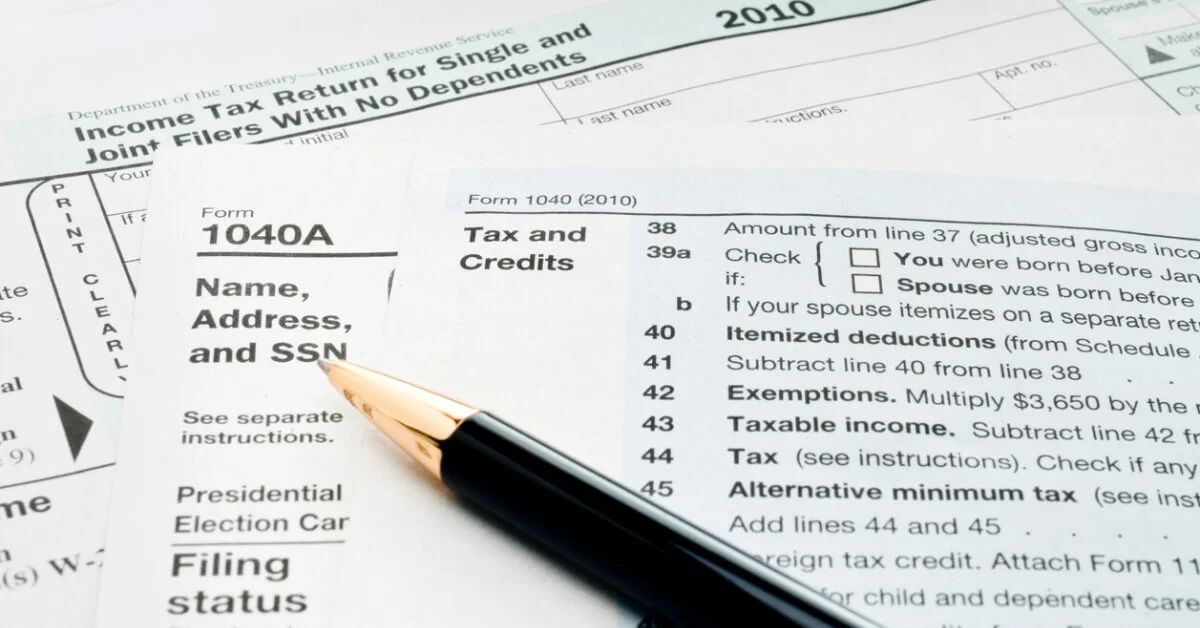What To Do If The IRS Is Disputing Your Itemized Deductions

Approximately 196 million federal tax returns are filed in the U.S. every year. Of those, around one million — or .5% — are subject to audit, which is an additional examination of the return, the deductions filed, and the amount owed or returned to the taxpayer. One relatively common reason for a taxpayer’s return to be audited is the itemized deductions that they’ve claimed for the year.
If you have received a letter stating that the IRS is disputing your itemized deductions, what should you do next? Read on for more information about all things itemized deductions related.
What Are Itemized Deductions?
Each year, taxpayers must decide between taking standardized deductions on their federal tax return or itemizing their deductions. Itemized deductions are expenditures on eligible products, services, and contributions that can be subtracted from the individual’s adjusted gross income for the year.
This allows taxpayers to pay less in taxes than they would if they took the standardized deduction, which is a fixed amount based on the taxpayer’s filing status. There is an extensive list of allowable deductions that includes expenses such as mortgage interest, charitable donations, and medical expenses that weren’t reimbursed.
Tax deductions are different than tax credits in that deductions reduce the amount of taxable income, while credits reduce the amount of taxes owed. Itemized deductions for individual taxpayers are reported on the Schedule A of the 1040 form.
When you incur a deductible expense throughout the year, you should keep a receipt of that expense in order to prove its validity if audited by the IRS. Other documentation that can be used for proof of validity includes bank statements, insurance bills, medical bills, and tax receipts from charitable organizations.
What To Do When The IRS Disputes Your Itemized Deductions
- Read the dispute letter from the IRS carefully and note the deadline to respond
- Gather supporting documentation like receipts, bills, and bank statements
- Make copies of the letter and your documentation to retain for your records
- Respond to the IRS by the deadline explaining why you disagree
- Include copies of documentation supporting your claimed deductions
- Allow 30 days for the IRS to reply after submitting your response
- If the IRS still disallows deductions, request a phone call with the examiner
- If that doesn’t resolve it, ask for a call with the examiner’s manager
- You can also formally request an IRS appeal if deductions remain disallowed
- To appeal, file paperwork and follow instructions outlined in the IRS letter
- Have your tax attorney present for any IRS conversations and the appeal
- After the appeals conference, you’ll get a final mailed decision within 120 days
- Consider hiring a tax attorney for guidance through the entire dispute process
Your Dispute Letter
Taxpayers have rights, including the right to be informed of any issues the IRS has with their return, the right to pay no more than the correct amount of tax, the right to appeal the IRS’ position in matters related to the collection of tax, and the right to retain attorney representation to assist in the dispute.
You will always receive a letter by mail if the IRS is disputing your itemized deduction.
The IRS does not engage with taxpayers about disputes over social media or email and — because calling the IRS is often a time-consuming process — taxpayers are never required to speak with the IRS over the phone either. The IRS has set up its website so that most business matters can be handled online.
The letter you receive will provide the applicable website address and instructions as to what your next steps should be.

Taxpayers should be aware that ignoring correspondence from the IRS is essentially the same as agreeing with their determination that there was an error. If you fail to respond to the request for more information in a timely manner, you can be subject to penalties and interest on any amount owed as a result of the dispute.
How to Respond
According to the IRS, if you dispute the findings of an official letter that was mailed to you, you should send a letter detailing the reason you disagree. Because the dispute is regarding your itemized deductions, include copies of information regarding the deductions such as medical bills, receipts of charitable contributions, or other allowable expenditures.
Be sure to follow the instructions provided to you in the letter, submit the information requested by the deadline that is listed on the letter, and keep copies of all correspondence with the IRS in your personal files. If you are unsure as to the information needed or the proper procedure for submitting this information, you are permitted to obtain assistance from an attorney.
Allow 30 days for a follow-up response from the IRS and then follow these steps:
- If the IRS accepts your itemized deductions documentation and indicates that the matter is resolved, there is no further action needed.
- If the IRS examiner determines that the deductions were not allowable and proposes an adjustment of your tax earnings, you can request a phone conversation with the examiner. If this does not produce the results you desire, you can either request a phone conversation with the examiner’s manager or you can request an appeal.
- If the IRS determines that your deductions were not allowable and provides information on how to appeal the decision, then you are able to request an appeal by following the instructions. At this time, it is advised that you contact an attorney who can offer guidance and services to help you with your appeal. You will need to file a form with the IRS that allows your attorney to contact them on your behalf.
- In order to obtain an appeal, you will need to file a protest on the letter explaining your appeal rights and send it to the IRS address listed on the letter.
- The appeals process is rather informal and can take place by the phone, in person, or virtually. You will want to have your attorney and/or certified public accountant present for the conversation. At the start of the appeal, the IRS appeals representative will explain the process before listening to your concerns. If any new information is presented during the appeals conference, the case may be returned for consideration of the new information.
- When you have completed your appeals conference, you should receive an official decision by mail from the IRS within 120 days.
Why You Need an Attorney
The tax system is complex and often confusing for those who are not trained in the laws that govern the taxation of income. When the IRS is disputing your deductions, you can be sure that they are relying on information by professionals who understand those laws.
According to a publication by the IRS, a study of 17 cases involving disputed itemized deductions for charitable contributions resulted in 13 wins for the IRS, and 4 split decisions. In seven of these cases, the taxpayer was self-represented in the dispute, and the IRS prevailed in all of those cases. These statistics demonstrate how necessary it is to have a professional of your own to assist you in the dispute.
Let an experienced tax attorney help you make sense of the process and provide guidance on how to prove your deductions. For more information, contact us.





Free Consultation 24/7
Chad Silver
Attorney

Silver Tax Group Locations


777 South Flagler Drive
Suite 800 – West Tower
West Palm Beach FL 33401

4005 Guadalupe St
Suite C
Austin, TX 78751


